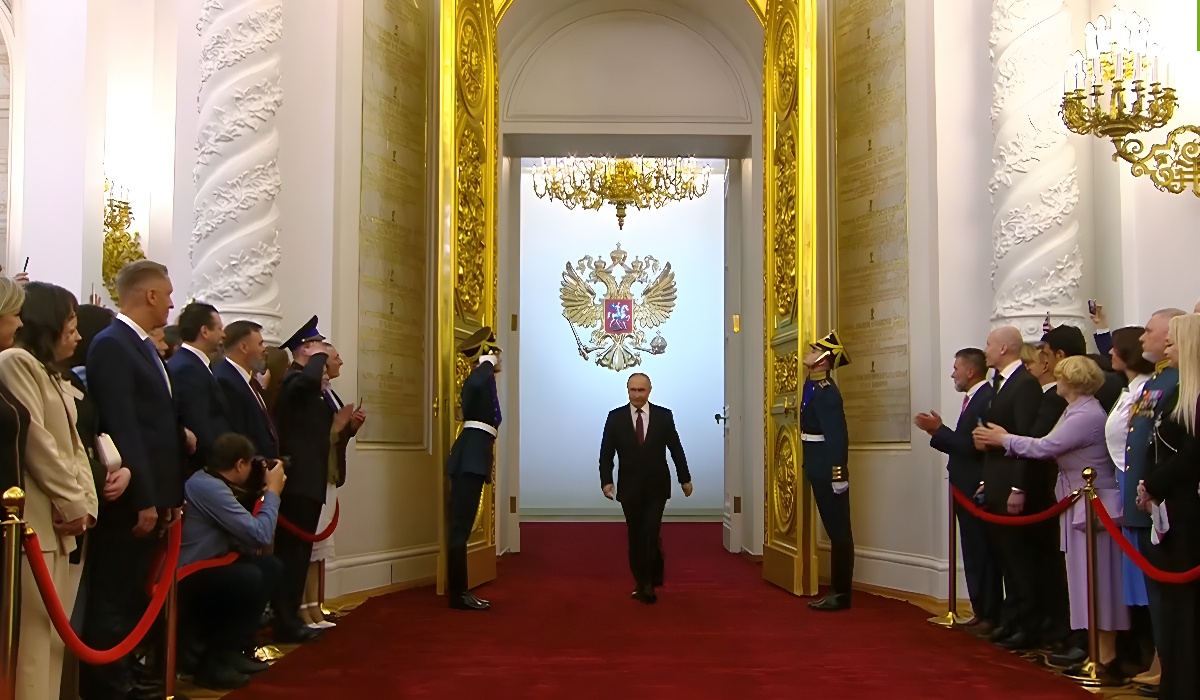In a ceremony held today in Moscow, Vladimir Putin was officially sworn in for his fifth consecutive term as the President of the Russian Federation. This unprecedented extension of power marks a significant milestone in Putin’s political career, solidifying his status as one of the longest-serving leaders in modern Russian history.
Despite ongoing international scrutiny and domestic unrest, Putin’s popularity among Russian citizens remains remarkably high. His victory in the recent election reflects widespread support, with many attributing his continued appeal to his image as a strong and decisive leader.
One of the most notable challenges during Putin’s tenure has been the conflict in Ukraine, which has strained Russia’s relations with the West and sparked concerns about regional stability. Despite these tensions, Putin’s administration has maintained a firm stance, positioning him as a wartime president committed to defending Russian interests.
Economically, Russia has weathered various storms under Putin’s leadership, with the country experiencing periods of growth and resilience. Putin’s policies, including efforts to diversify the economy and invest in key industries, have contributed to its overall stability despite external pressures.
Putin’s longevity in office has prompted discussions both domestically and internationally about the nature of democracy and governance in Russia. While critics argue that his extended rule undermines democratic principles, supporters point to his ability to maintain stability and assert Russia’s influence on the global stage.
As Putin embarks on his fifth term, the focus remains on his agenda for the future and how he will address the ongoing challenges facing Russia both at home and abroad. With his firm grip on power and enduring popularity, Putin’s presidency continues to shape the trajectory of Russian politics for the foreseeable future.









